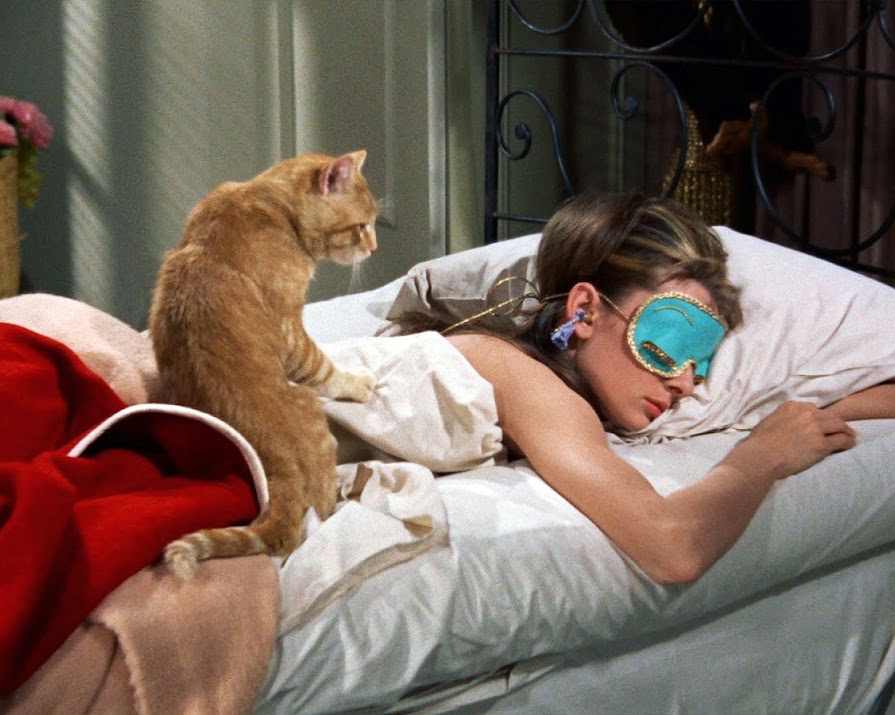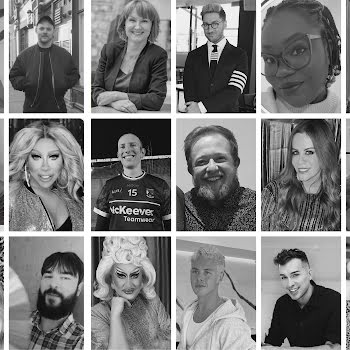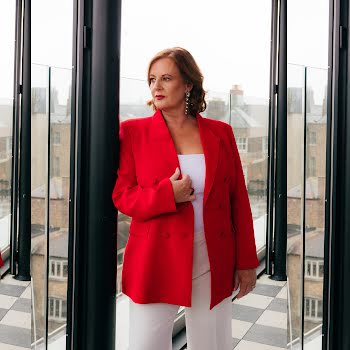This is why during the pandemic, time feels both fast and slow
By Holly O'Neill
24th Oct 2020
24th Oct 2020
Feeling a distortion of time at the moment? It’s a thing
A few months ago (weeks? years?) just as Kildare’s lockdown hit, I had a month off work. Like the entirety of All This, the month lasted both three years and five minutes.
You know that two-minute scene in New Moon when Edward Cullen breaks up with Bella and she sits looking out a window for three months watching the seasons change outside? It felt a bit like that.
It was like re-doing the pandemic all over again. I started out with a whole new life; working out every day, throwing away mismatched socks and old underwear, making lemon zest pasta from the free month’s subscription to NY Times Cooking, googling how to zest a lemon and ordering every new book that took my fancy.
I visited just about everything Kildare has to offer, places I hadn’t visited since I was a toddler, like the National Stud and Japanese Gardens, which is great. There are horses and a lovely fairy walk if you have small ones, there’s ample opportunity to get your 10,000 steps in if you’re my parents, there’s rather a lot of astrology involved if you’re a millennial and if none of these things appeal to you but you find yourself there anyway, there’s a really good lemon and almond cake in the cafe.
I made three trips to Kildare Village to visit a beloved zebra print knitted sweater from The Kooples on my post-pandemic wishlist.
Pretty soon, I descended back into the WFH schedule I gradually had come to know. Several times I found myself outside where a gust of wind reminded me that while I never fail to leave the house without sanitiser and a mask, I had entirely forgotten the existence of bras.
Being locked into my county mostly meant being locked into my house. On the boring days, I did things like spending three hours painstakingly attempting what looked like very simple daisy nail art on Instagram. I watched I Hate Suzie on Sky in a day (do watch it, it’s got Fleabag’s relatability with Succession’s humour — the show’s writer Lucy Prebble is also a writer on Succession — and a Sex and The City wardrobe).
Within a week I couldn’t get my brain to focus on anything. I binged half of Jane Birkin’s excellent autobiography (it’s just been released in English) in a day. She writes that when she first met Serge Gainsbourg, she didn’t want to be as dependent on him as she had been with her first husband so decided to go back to London. Serge was so despondent he “cried all night in silence in front of a lit candle,” which Jane says was “very Russian and dramatic”. The book is filled with haphazard, ridiculous quips like this — ie, everything I wanted it to be — yet I dropped her as soon as the next book landed on my door. I turned my screentime report off my phone. The evening before I was due back to work, Kildare’s lockdown ended.
No matter how busy or empty my days were, they lasted either five minutes or five decades. There was no inbetween. This distorted perception of time is, apparently, a common pandemic problem, according to a survey conducted at Liverpool John Moores University in the UK.
Ruth S. Ogden, PhD, lead researcher of the survey, found that of those surveyed, about 20 percent of the participants experienced time as normal during lockdown, 40 percent experienced it as slower than normal, and 40 percent faster than normal.
“When I looked at what made time pass slowly, I found that being older (above 65) and having low levels of satisfaction with current levels of social interaction and high levels of stress were likely to make someone feel like lockdown was passing slowly,” Ogden told Healthline. “Conversely, being young, busy, and socially satisfied made lockdown pass more quickly,” she said.
Another cause for this time distortion, says Ogden, is emotion; fight-or-flight response makes time seem longer, calmness makes time seem shorter.
“So, when we experience fear, we experience a sensation of more time passing than slower than normal. This is because our perception of time is affected by our level of arousal,” she told Healthline.
The solutions to this time distortion are, of course, the things you already know; have a routine, connect with friends and family, be busy but not stressed but it’s okay to be a little bit stressed.
Basically all the things you can’t actually do in a pandemic. To start, I might kick off slowly with wearing a bra again. Just the thought of it makes me feel like someone with a routine who is a little bit stressed.
Read more: “In my house the more clutter, the better”: When minimalist design just isn’t for you
Read more: The perfect leather blazer is your autumn wardrobe essential
Read more: Shock, Denial, Fear: I thought my life was over when my photos were leaked























